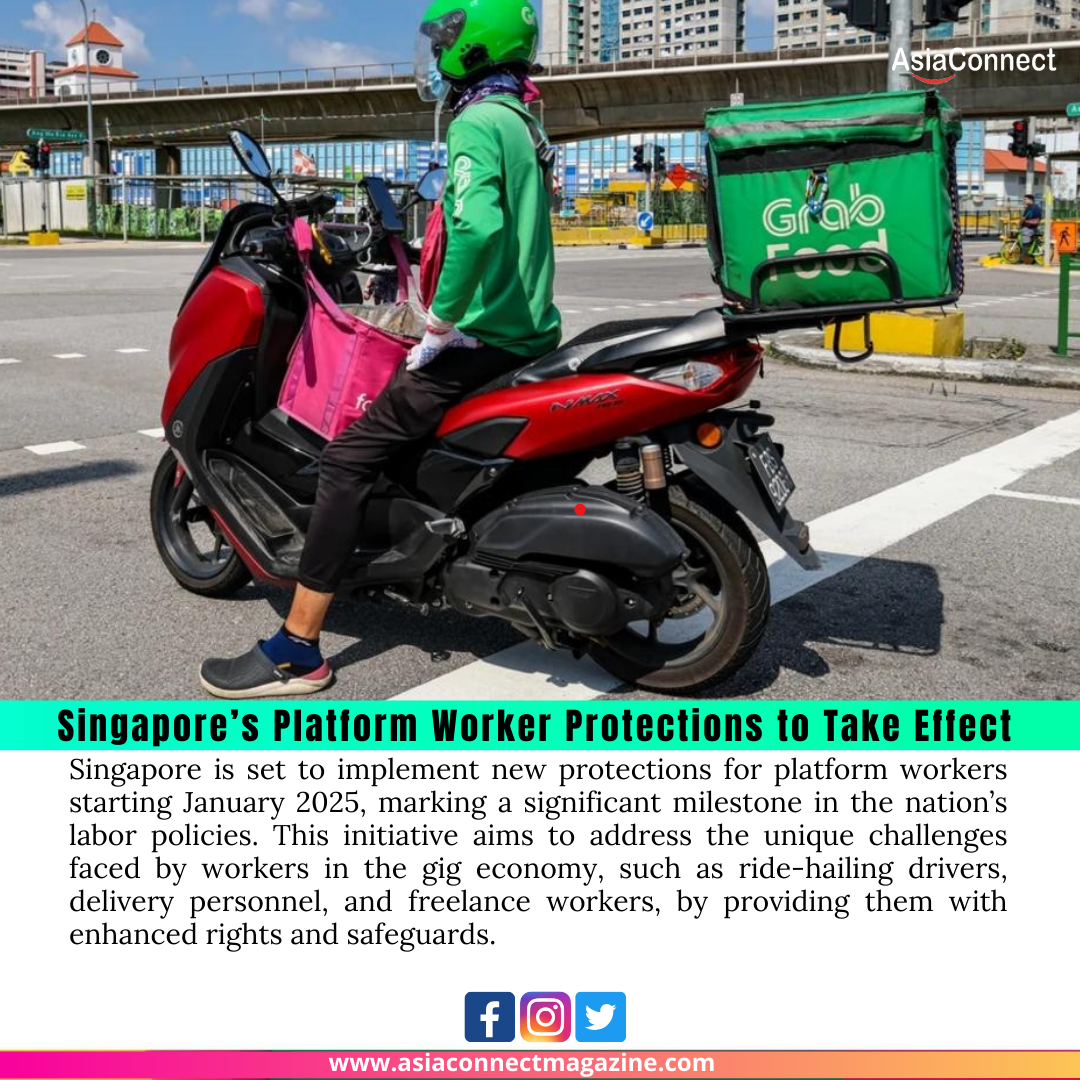Singapore is set to implement new protections for platform workers starting January 2025, marking a significant milestone in the nation’s labor policies. This initiative aims to address the unique challenges faced by workers in the gig economy, such as ride-hailing drivers, delivery personnel, and freelance workers, by providing them with enhanced rights and safeguards.
The move comes in response to growing concerns about the working conditions and job security of platform workers, who have traditionally lacked the same level of protection as their counterparts in more conventional employment settings. As the gig economy expands, the Singaporean government has recognized the need for a structured approach to ensure fair treatment and support for this growing segment of the workforce.
Key Aspects of the New Protections
- Minimum Wage and Earnings Security: One of the cornerstone measures is the introduction of a minimum wage for platform workers. This step aims to guarantee that workers receive a baseline level of income, which will help mitigate income instability often associated with gig work. The minimum wage policy is expected to provide financial security and reduce income inequality among platform workers.
- Accident and Health Insurance: Recognizing the risks associated with platform work, the new regulations will require companies to provide accident and health insurance coverage. This insurance will offer protection against workplace injuries and health issues, ensuring that workers have access to necessary medical care without bearing the financial burden alone.
- Fair Employment Practices: The new regulations will also mandate fair employment practices, including the prohibition of discriminatory practices and unfair treatment based on factors such as gender, age, or nationality. This move aims to create a more equitable work environment and ensure that all platform workers are treated with respect and dignity.
- Dispute Resolution Mechanisms: To address grievances and disputes, the new protections will establish clear mechanisms for conflict resolution. Workers will have access to a structured process to resolve issues related to their employment terms, payment disputes, and other concerns, providing a formal avenue for addressing workplace challenges.
- Training and Career Development: The policy will also promote opportunities for training and career development. By facilitating skill enhancement and professional growth, the initiative aims to help platform workers advance their careers and improve their long-term employment prospects.
Implications for the Gig Economy
The introduction of these protections represents a significant shift in the regulatory landscape for the gig economy in Singapore. By implementing these measures, the government is acknowledging the evolving nature of work and the need for new frameworks to address the complexities of platform-based employment.
For platform companies, compliance with the new regulations will require adjustments in their operational practices and financial planning. Companies will need to invest in systems to manage insurance coverage, wage payments, and dispute resolution processes. While this may involve additional costs, it also offers an opportunity for businesses to enhance their reputation and attract a more stable and satisfied workforce.
Looking Ahead
As the January 2025 implementation date approaches, both platform workers and companies are preparing for the changes. Workers are expected to benefit from increased financial stability, better health protections, and a more supportive work environment. Meanwhile, companies will need to navigate the new regulatory requirements and adapt their practices to align with the updated standards.
Overall, Singapore’s new platform worker protections are poised to set a precedent for other countries grappling with similar challenges in the gig economy. By prioritizing worker welfare and fair treatment, Singapore is taking a proactive step towards creating a more inclusive and equitable labor market.





